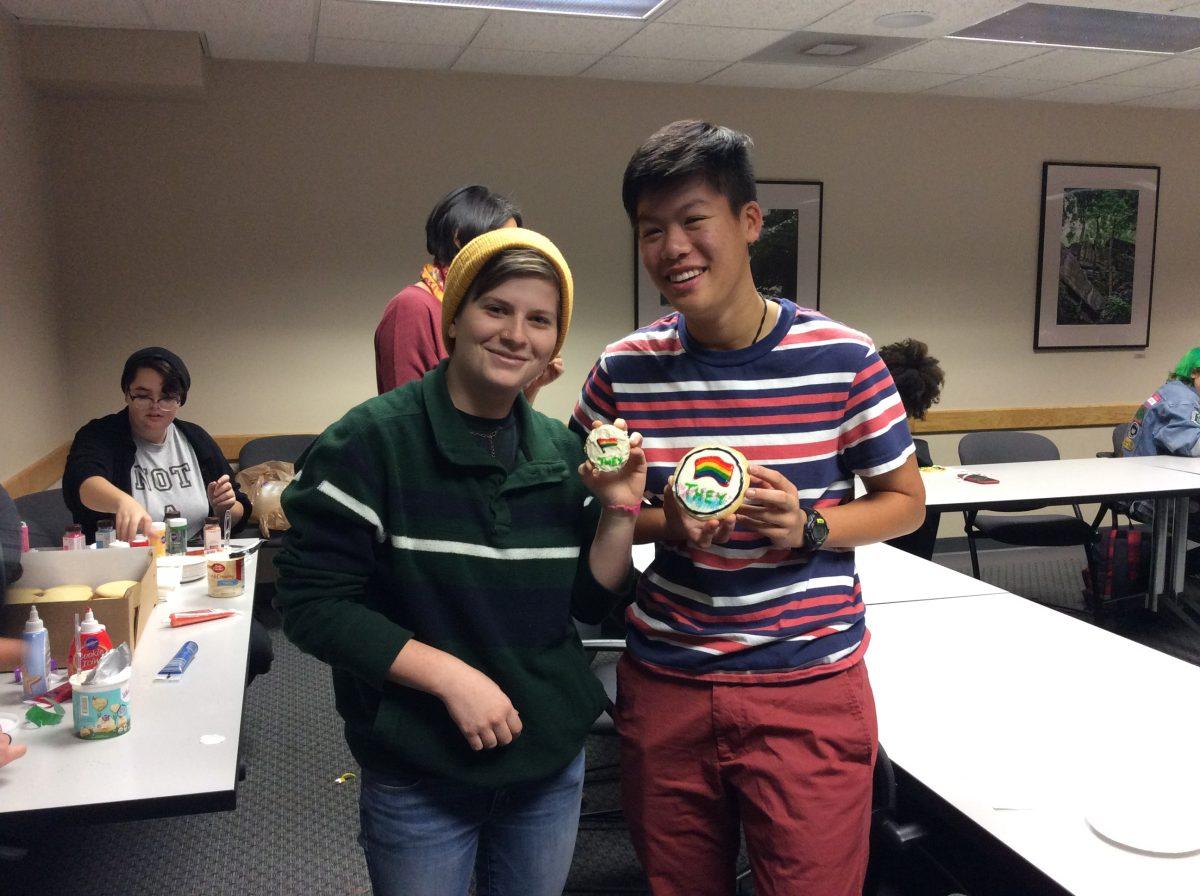
Luca Maurer, director of IC’s Center for LGBT Education, Outreach and Services, helped organize the first-ever International Pronouns Day. Held Oct. 17, the day raised awareness about individual pronoun preferences.
The pronouns we use to describe ourselves are one of the cornerstones of our identity, noted Maurer.
Maurer added that an international observance “normalizes the sharing and asking of people’s personal pronouns because pronouns are one of the basic ways people show dignity and respect to each other – by calling them the names and the pronouns that they want to be called.”
Ithaca College organized several different events in recognition of International Pronouns Day. In the morning there was a professional development session to help faculty and staff learn about the various types of pronouns, and how to integrate them into the classroom and other areas of campus.
A table was set up in Campus Center, where people could see Ithaca Mayor Svante Myrick’s proclamation that declared the day a holiday in the city of Ithaca.

Referring to people by the pronouns they determine for themselves is basic to human dignity.
Ithaca is committed to being inclusive — we’re proud to be diverse, accepting and supportive of all individuals, families and communities.”-Mayor Svante Myrick in a Facebook statement in support of International Pronouns Day. (Photo by Joe Jones)
People could also express themselves online. Ithaca College’s LGBTQ center created specialized Facebook frames so people could display their pronoun preferences with their profile picture. In addition, a social media campaign featured Ithaca College faculty and staff wearing their pronoun buttons and speaking about what pronouns mean to them.

Participants were given an opportunity to decorate cookies as if they were pronoun buttons, and then eat their “pronouns” afterwards.
“They” and “them” are pronouns that are becoming more frequently used but
can also be misunderstood.
Noa Livernois, a student who uses these pronouns, said they hope that International Pronouns Day can lead to those pronouns becoming more mainstream.

“They/them pronouns are still not very accepted by a lot of people, and not known and not thought about,” said Livernois. “You’re categorized by other people’s internal definitions of pronouns and gender, so this is a really important day about how you respect your fellow people, and how you should not make assumptions about gender based on bodies and stuff.”
By introducing yourself to others with your name, as well as your pronoun, it offers a window of opportunity for people to share their own pronouns too. Carter Kohler said these types of conversations normalize all types of pronoun use, and make living less difficult for people like them.
“If we talk about it more, it’s less than the individual has to advocate and educate for themselves. Which is really exhausting to do constantly,” said Kohler. If I as an individual don’t have to go around explaining what they/them pronouns are to every person I meet, it makes my day-to-day life and people’s lives around me so much easier.”

Kohler added that they have already seen a tremendous difference on campus in terms of pronoun recognition, even before International Pronouns Day.
“I’ve gotten pretty good reception from professors over the last four and a half years. I’ve had some negatives, but mostly it’s very positive. Teachers are actively making changes to their classes and their ensembles to be more inclusive, and to change their language a little bit, so that’s reassuring to see.”







